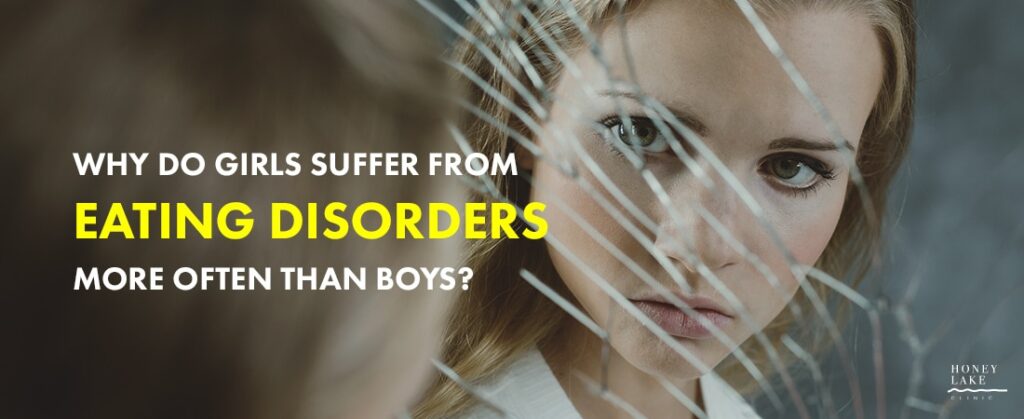Why Do Girls Suffer from Eating Disorders More Often than Boys?
People mistakenly think of eating disorders as phases, fads or lifestyle choices. They are actually serious mental disorders which impact you physically, psychologically and socially. Eating disorders should be taken very seriously. They can be life-threatening.
What Are Eating Disorders?
Eating disorders are conditions expressed through abnormal eating habits. They often begin with an obsession of some sort, over food, body weight or body shape, for instance. Most include the severe restriction of food, food binges or inappropriate purging behaviors like vomiting or over-exercising.
If you or someone you love has an eating disorder, we can help. Have a confidential conversation with a counselor right now. Call (888) 837-6577.
There are many misperceptions surrounding eating disorders, one of them is the idea that eating disorders only affect young women. Eating disorders can and do affect males and females at any age or stage of life. That said, they are most often reported in girls and young women. There must be something about being a female that increases your risk for an eating disorder.
Why do girls suffer from eating disorders more often than boys?
One of the leading factors known to contribute to the development of an eating disorder is body dissatisfaction, or a negative body image. Body image is defined as one’s thoughts, perceptions, and attitudes about their physical appearance.
In western culture, concern over body size and shape are all too common. Research has shown that women are more likely to possess a negative body image than men.
How do you see yourself? How do you feel about your body? Your height? Your weight? How do you feel about what you see when you look in the mirror? And more importantly, what informs those thoughts and perceptions? What sets the standards?
A positive body image is a clear, true perception of your shape, seeing the various parts of your body as they really are. Body positivity involves feeling comfortable and confident in your body, accepting your natural body shape and size, and recognizing that physical appearance says very little about your character and value as a person.
A negative body image, on the other hand, involves a distorted perception of your shape. Negative body image leads to feelings of shame, anxiety, and self-consciousness. If you feel your body is flawed in comparison to others, you are more likely to suffer feelings of depression, isolation, low self-esteem, which research indicates contribute greatly to the development of eating disorders.
While not everyone who experiences poor body image will develop an eating disorder, understanding this vulnerability is vitally important to treating the disorder.
Getting to the root rather than only treating the symptoms
At Honey Lake Clinic, our experienced staff, licensed therapists, psychologists, and psychiatric specialists understand that effective treatment for eating disorders requires a multifaceted, faith-based approach, involving healing of the body, mind, and spirit. Our unique treatment programs specifically and deeply address all three spheres, offering each client his or her greatest chance at wholeness and transformative growth.
Addressing unhealthy and distorted body image perceptions, developing the tools you need to re-program unhealthy thinking and stop unhealthy practices, and gaining an understanding of the role proper nutrition plays in your recovery, are all important components to your treatment.
Proper and thorough treatment offers you the best chance for complete recovery. We can help.




